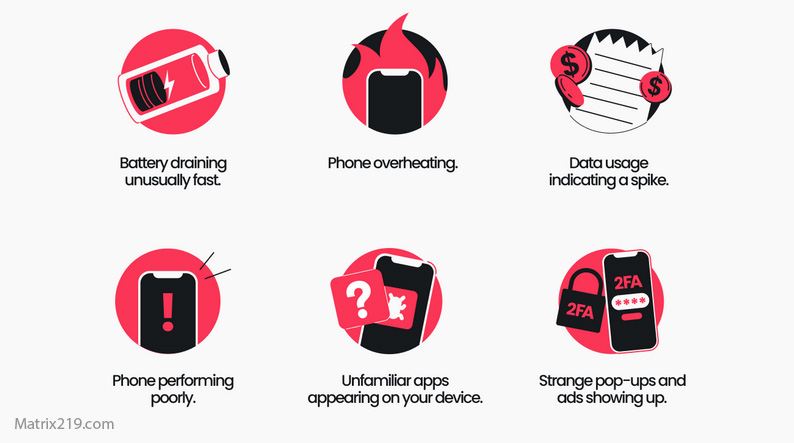In today’s interconnected digital era, cybersecurity is a cornerstone of national resilience. As Arab nations pursue ambitious visions for digital transformation, smart cities, and e-governance, the threat landscape grows more complex. From financial systems to energy infrastructures, protecting data and digital assets is no longer optional but a national priority.
The Arab world has made remarkable progress in recent years. Countries across the Middle East and North Africa (MENA) region are investing heavily in cybersecurity strategies, advanced technologies, and capacity building. This article explores the top Arab countries in cybersecurity in 2025, highlighting their achievements, rankings, initiatives, and challenges.
Why Cybersecurity Matters in the Arab World
Rising Cyber Threats in MENA
-
Critical infrastructure attacks on oil, gas, and energy.
-
Ransomware targeting government databases and corporations.
-
Phishing and financial fraud affecting individuals and SMEs.
-
State-sponsored attacks in geopolitical conflicts.
The Push for Digital Transformation
Arab nations are adopting cloud services, AI, and IoT technologies at an accelerated pace. With smart cities like NEOM in Saudi Arabia and advanced e-government services in the UAE, cybersecurity is essential to protect innovation.
Global Cybersecurity Index (GCI) Rankings
The International Telecommunication Union (ITU) publishes the Global Cybersecurity Index, which evaluates countries on legal, technical, organizational, capacity building, and cooperation measures. Several Arab countries rank among the global leaders.
Top Arab Countries in Cybersecurity 2025
1. United Arab Emirates (UAE)
Achievements
-
Consistently ranks among the top 5 globally in cybersecurity readiness.
-
Home to the UAE Cybersecurity Council, which leads national strategies.
-
Hosts global events like GISEC Global in Dubai.
Key Initiatives
-
National Cybersecurity Strategy 2020–2025.
-
Investments in AI-powered threat detection.
-
Collaboration with Microsoft, IBM, and Cisco for cloud security.
Strengths
-
Strong legal framework.
-
World-class training programs.
-
Active role in international cyber cooperation.
2. Saudi Arabia
Achievements
-
Ranked among the top 10 worldwide in ITU’s GCI.
-
Established the National Cybersecurity Authority (NCA) in 2017.
-
Significant investments as part of Vision 2030.
Key Initiatives
-
Cybersecurity as a pillar in NEOM smart city.
-
National programs for cybersecurity startups.
-
Cybersecurity partnerships with global defense and tech firms.
Strengths
-
Comprehensive regulatory environment.
-
Strong defense of critical infrastructure.
-
Growing local cybersecurity talent pool.
3. Qatar
Achievements
-
High global ranking in the Global Cybersecurity Index.
-
Prepared extensively for cyber threats during FIFA World Cup 2022.
Key Initiatives
-
National Cyber Security Strategy (revised 2023).
-
Qatar Computer Emergency Response Team (Q-CERT).
-
Cooperation with NATO and INTERPOL.
Strengths
-
Advanced infrastructure monitoring.
-
Public awareness programs.
-
Investment in cybersecurity R&D.
4. Oman
Achievements
-
Among the top 15 globally in GCI rankings.
-
Known for strong regional leadership in cyber cooperation.
Key Initiatives
-
Oman National CERT (OCERT).
-
Cybersecurity initiatives for critical industries (oil & gas).
-
Collaboration with ITU on cyber drills.
Strengths
-
Effective incident response capabilities.
-
Regional leader in training and awareness.
-
Balanced legal and technical measures.
5. Egypt
Achievements
-
Rapidly advancing in cybersecurity readiness.
-
Hosts the Egypt National Cyber Security Strategy 2022–2027.
-
Plays a regional leadership role in Africa and the Arab world.
Key Initiatives
-
National Telecom Regulatory Authority (NTRA) cyber division.
-
Investments in fintech and critical infrastructure security.
-
Training programs for students and professionals.
Strengths
-
Large cybersecurity workforce pipeline.
-
Expanding cybersecurity research ecosystem.
-
Growing emphasis on protecting digital economy.
6. Jordan
Achievements
-
Improved significantly in recent GCI reports.
-
Focused on e-government security.
Key Initiatives
-
National Cybersecurity Strategy 2018–2023 (extended to 2025).
-
Jordan CERT initiatives.
-
Collaboration with US and EU on cyber resilience.
Strengths
-
Strong organizational capacity.
-
Focus on public-private partnerships.
-
Emphasis on cybersecurity education.
7. Morocco
Achievements
-
Among North Africa’s top cyber-ready countries.
-
Member of several global cybersecurity initiatives.
Key Initiatives
-
Morocco CERT (MA-CERT).
-
National strategy aligning with African Union’s cybersecurity framework.
-
Investments in digital economy protection.
Strengths
-
Balanced approach across sectors.
-
Strong role in regional cooperation.
-
Investments in awareness campaigns.
8. Bahrain
Achievements
-
Focused heavily on fintech and banking cybersecurity.
-
Ranked well in regional cyber readiness indices.
Key Initiatives
-
National Cybersecurity Center.
-
Cyber defense programs for financial institutions.
Strengths
-
Financial services protection.
-
International collaborations with EU and Gulf states.
-
Development of regulatory compliance frameworks.
Comparison Table: Top Arab Countries in Cybersecurity
| Country | Global Ranking (Approx.) | Key Body/Authority | Strengths |
|---|---|---|---|
| UAE | Top 5 | UAE Cybersecurity Council | AI-driven defense, international role |
| Saudi Arabia | Top 10 | National Cybersecurity Authority | Critical infrastructure, Vision 2030 |
| Qatar | Top 15 | Q-CERT | Event preparedness, global cooperation |
| Oman | Top 15 | OCERT | Incident response, regional training |
| Egypt | Top 25 | NTRA Cyber Division | Workforce, digital economy protection |
| Jordan | Top 35 | Jordan CERT | E-government, education focus |
| Morocco | Top 40 | MA-CERT | Regional cooperation, awareness |
| Bahrain | Top 45 | National Cybersecurity Center | Financial services, compliance |
Key Trends in Arab Cybersecurity
1. AI-Powered Cyber Defense
Arab countries are adopting machine learning and AI for threat detection and incident response.
2. Focus on Critical Infrastructure
Energy, oil, and banking are prioritized sectors in national strategies.
3. Cybersecurity Talent Development
Initiatives like cyber bootcamps, scholarships, and university programs are expanding rapidly.
4. Regional and International Cooperation
Arab countries are collaborating with global organizations (ITU, INTERPOL, NATO) to share threat intelligence.
5. Cybersecurity in Smart Cities
Projects like NEOM in Saudi Arabia and Dubai Smart City in the UAE are driving innovation in urban cybersecurity.
Challenges Facing Arab Countries
-
Shortage of skilled professionals despite growing training initiatives.
-
Sophisticated state-sponsored attacks targeting critical industries.
-
Balancing digital transformation with security investments.
-
Data sovereignty concerns with cloud adoption.
Conclusion
The Arab world has made significant strides in cybersecurity over the past decade. Countries like the UAE, Saudi Arabia, Qatar, Oman, and Egypt are global leaders in building resilient cyber ecosystems, while Jordan, Morocco, and Bahrain are rapidly strengthening their cyber defenses.
As digital transformation accelerates, Arab nations will continue to invest in AI, cloud security, and human capital to secure their economies and societies. In 2025, the region is not only catching up but in many areas setting global standards for cybersecurity excellence.





